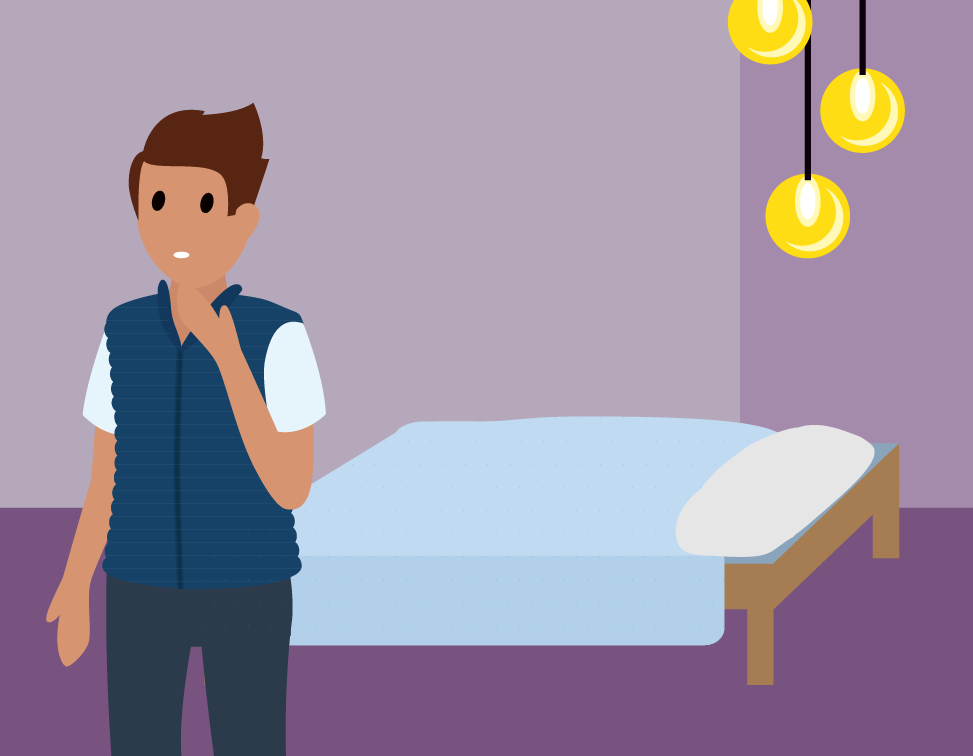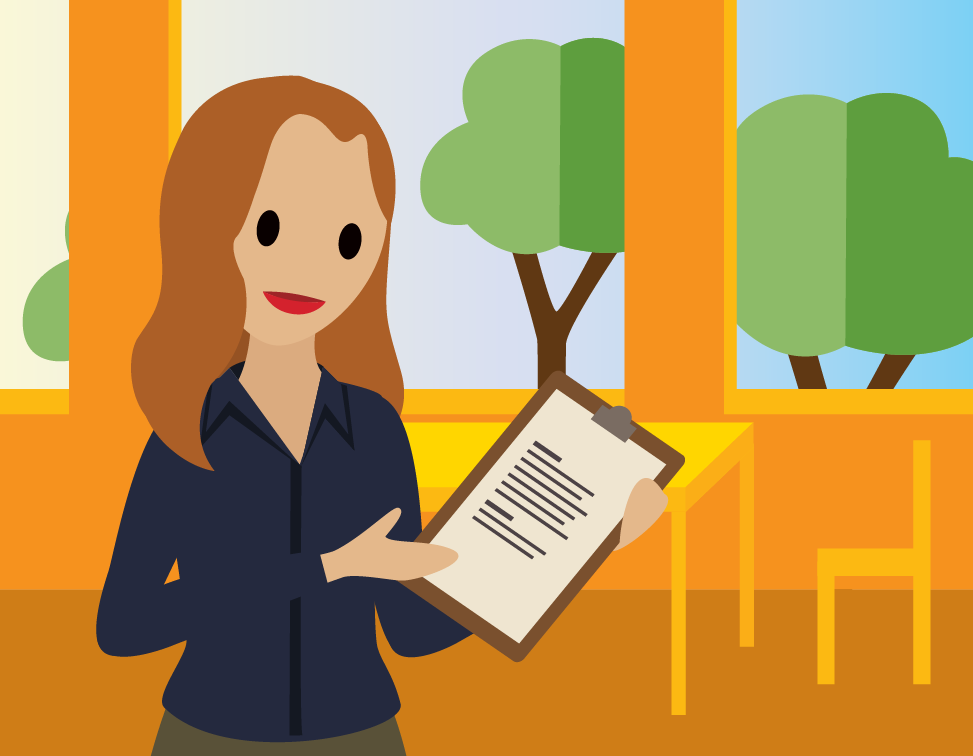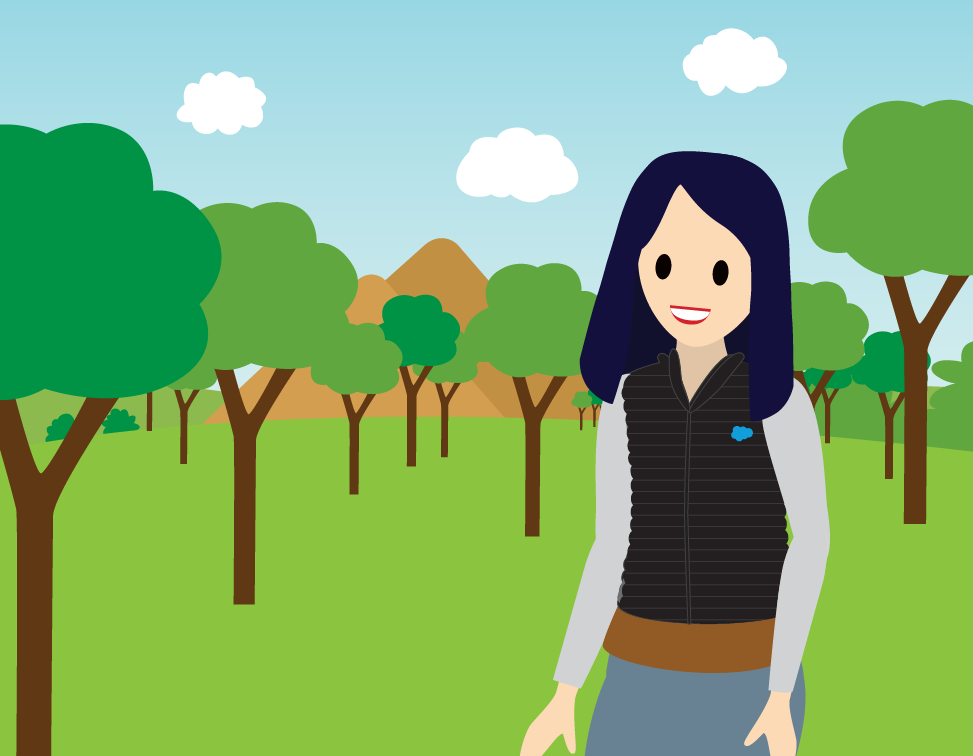Get Better Sleep
Learning Objectives
After completing this unit, you’ll be able to:
- Quantify the ideal amount of sleep you need each night.
- Identify common myths about sleep.
- Describe positive sleep habits.
- Name ways to create a team culture that values sleep.
How Much Sleep Is Enough?
When was the last time you got the recommended 7–9 hours of sleep? Chances are, it’s been awhile. According to a Gallup poll, 40% of American adults are sleep deprived. And it’s not just Americans. A Sleep Cycle data survey finds that no country in the world achieves an average of 8 hours of sleep per night. Turns out we could all use a little help getting the recommended amount of sleep!
Let’s start by busting some common sleep myths.

Four Sleep Myths Put to Rest
1. I’m too busy to sleep during the week, but I can make up for it by sleeping late on the weekend. Unfortunately, you can’t bank sleep. Sleeping more on the weekends will never replace the sleep you lost during the week. Imagine accumulating years of debt and trying to pay it all off at once—there’s no such thing as winning the sleep lottery. The National Sleep Association suggests that you would be better off with a consistent sleep/wake schedule every day of the week.
2. Napping is a no-no. There is much debate about napping, but some studies like the one in the Journal of Clinical Endocrinology & Metabolism, show that short naps lower stress and boost immunity. To reap the rewards of napping—and avoid disrupting your normal sleep patterns—just remember to keep naps short (set an alarm!) and listen to your body.
3. When you can’t sleep, the best thing to do is count sheep. While a fluffy, white distraction might be tempting, it’s just that: a distraction. Rather than engaging your brain in a task (like counting), the National Sleep Foundation suggests conjuring up relaxing imagery or thoughts to help you get to sleep. And if that doesn’t work for you, try getting out of bed. Dr. Walker recommends leaving your bedroom. That way, your brain won’t link your bed to being awake.
4. An adult beverage before bed helps me wind down and get to sleep faster. Reaching for a nightcap to get to sleep? Think again. Alcohol actually blocks REM sleep, meaning that you don’t reach the critical phase of sleep which keeps you mentally sharp (Sleep Revolution). You may get to sleep quicker because alcohol acts as a sedative, but your sleep is more likely to be fragmented and less restorative.
If you’re ever tempted to skimp on snoozing, just remember: the shorter your sleep, the shorter your life. That’s right, studies show that folks who don’t make time for sleep have shorter lifespans and a poorer quality of life (Sleep Revolution).

Tips for Getting the Best Sleep of Your Life
At Salesforce, we’re all for making every second count—including the ones with your eyes closed. Rest assured, your sleep will be top-notch with these tips.
- Create a Sleep Routine. Establish a bedtime ritual. It could be as simple as brushing your teeth and turning down your sheets. And stick to a regular sleep schedule — this means going to bed and waking up at the same time every day.
- Turn Down the Lights. Artificial light is ruining our sleep. Light suppresses melatonin production, which is important for sleep. The National Sleep Foundation recommends using low-wattage incandescent light bulbs in your bedroom and limiting exposure to artificial light after dark. Consider using blockout curtains or covering the glow from electronics to block out sources of artificial light.
- Unplug. According to a Bank of America Trends in Consumer Mobility Report, 71% of Americans sleep with or next to their smartphones. Sleeping next to your smartphone or staring at your electronic device before bed is bad for your sleep. Electronics emit blue light, which can disrupt your body’s biological clock. Limit screen time starting 30-minutes before bedtime.
- Create a Cool Sleep Environment. Temperature plays an important role in getting a good night’s sleep. The National Sleep Foundation recommends setting your bedroom temperature to 65 degrees Fahrenheit. If that sounds chilly, start with just a degree or two cooler than your usual room temperature.
- Exercise. A study from Oregon State University shows that regular physical activity may improve sleep (Sleep Revolution). The World Health Organization recommends that adults exercise at least 30-minutes per day, five days a week. It’s good for your mind, body, and sleep.
- Limit Caffeine to the Morning and Early Afternoon. Rethink that late afternoon caffeine jolt. Caffeine disrupts our sleep and the lingering effects of caffeine are often underestimated. Studies like the one in the Journal of Clinical Sleep Medicine show that caffeine can disrupt sleep when consumed as many as six hours before sleep.
- Pay Attention to What you are Eating Before bed. Avoid heavy meals before bed. The body needs two or three hours to digest a meal, which is why eating before bed can disrupt your sleep/wake cycle (Sleep Revolution). And avoid sleep-disrupting foods including spicy foods, fatty foods, processed carbs, and sugars. No junk food before bed!
- Spend Time in Nature. Sunlight helps regulate sleep patterns. The National Sleep Foundation recommends getting sunlight first thing in the morning to help alert the brain and get ready for the day. And when possible, spending time in the sunlight throughout the day helps too. Today, the Environmental Protection Agency says Americans spend 93% of our life indoors, and only about 7% outdoors (yikes!) — proof that there’s plenty of room for improvement.
- Unwind. An overactive mind can be a real sleep disruptor. So give yourself time to relax before bed. You might try a calming activity, like meditating, journaling, coloring, or sudoku.

Watch this video about tips for better sleep from our B-Well Together: Wellbeing Breaks series, which provides thought leadership, tips, and resources from wellbeing experts to support you and your families.
Create a Company Culture that Values Sleep
Remember all that stuff we said about how important it is to take care of ourselves and our employees? Well, sleep is a big part of that. Hard-working employees that come in every day with 4-6 hours of sleep are short-changing themselves and the company. The irony of lost sleep is that it is often done in the name of productivity. But as Arianna Huffington points out in Fast Company, “… our productivity is reduced substantially when we’re sleep deprived.” So, be sure to set your team up for sleep success. Here’s how.
- Share the facts by posting blogs, videos, and this module that explain the importance of sleep. Provide sleep facts and tips in Chatter or another collaboration platform that you use.
- Start the conversation with employees and encourage them to share their favorite sleep tricks and tips. Keep the conversation going over time and make well-rested employees a priority.
- Lead by example. Instead of sending late night emails to your team, use the delayed sending feature in Salesforce Inbox or another tool to send emails only during working hours. Better yet, don’t work when you should be sleeping!
- Give employees permission to unplug from technology. Being connected to technology 24/7 has taken away our permission to unwind. Talk with your teams to set expectations and let them know that they don’t need to respond to emails/work after working hours.
- Provide quiet spaces at the office for employees to catnap or rest — in a quiet conference room or a funky napping pod — so employees can recharge during the day.
Now That You’re Rested, Say So Long to Stress
In this unit, we learned that our behaviors and habits affect the quality of our sleep. Specifically, behaviors that keep our brain wired or stress us out. And according to the Center of Disease Control and Prevention, “ongoing stress is the main reason why so many Americans have chronic sleep problems.” But don’t worry, by putting some of these tips into practice and creating new bedtime habits you’ll start to feel refreshed and ready to start your day, everyday.
Resources
- Check out the National Sleep Foundation for more tips and tricks for sleeping at home or while traveling.
- Sleep Cycle Survey Today
- Sleep Tips National Sleep Association
- Sleeping With Smartphones The Huffington Post
